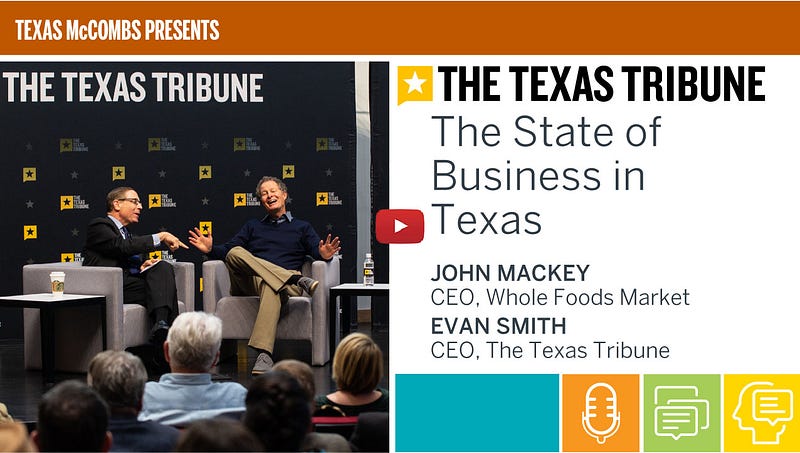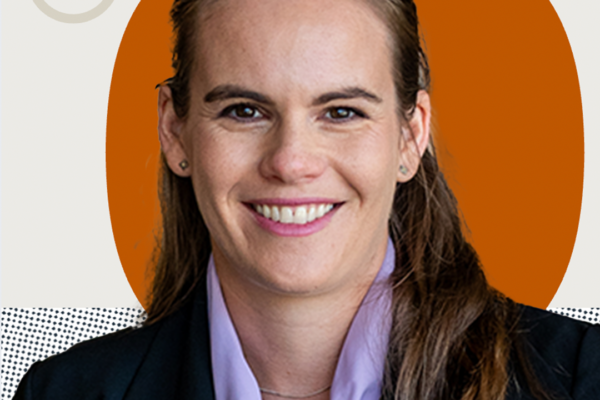Maximizing Purpose — Not Just Profit
Whole Foods Market co-founder and CEO John Mackey discusses the role of business in bringing good
By London Gibson

John Mackey thinks businesses should be more than just profit maximizers: They need to be purpose maximizers.
Too often people talk about business in negative terms, citing greed and selfishness, says the CEO and co-founder of Whole Foods Market, but this conversation is misguided. Mackey spoke at the McCombs School of Business on Feb. 28 in a Texas McCombs Presents event co-sponsored by the Texas Tribune and moderated by its founder and CEO, Evan Smith.

“Business has to make profits or it will die. But that doesn’t necessarily follow that that’s why it exists,” Mackey says. “In fact, business is a great force for good in the world.”
Mackey’s recent book, “Conscious Capitalism: Liberating the Heroic Spirit of Business” (with Raj Sisodia), explores the role of ethics in business practices. He writes about a concept called “Win6,” a system of value for businesses that will ideally benefit all of the stakeholders in a company: customers, employees, suppliers, investors, communities, and the environment.
According to Mackey, businesses should be operating in a way that strives for all six of these stakeholder groups to win, rather than just gaining profits.
“Once you begin to reframe business to think about it that way, you see it completely differently,” Mackey says. “You don’t see it in the either-or binary — for-profit or non-profit.”
Large parts of ensuring that Win6 is achieved, Mackey says, are competition and entrepreneurship.
Mackey cites Whole Foods’ competitors such as HEB as catalysts for fostering progress within the company. He also says there should be more of a business and entrepreneurship presence in education, because it’s important for young business leaders to experience competition.
“Education’s frequently a monopoly of government,” Mackey says. “Government is good at what it does, but I’d say entrepreneurship’s not one of them. I think that business is good at entrepreneurship. We have to be. We have to make money or we die.”
Business leaders are commonly portrayed as caring only about profit, but Mackey thinks this rhetoric is unfair. While he acknowledges that the private sector holds a different role than the public sector, he still thinks businesses have the ability to make change.
Mackey says when considering how businesses can impact the world, it’s important to take history into context. He says consciousness is evolving more rapidly now than ever before, and that corporations are improving at “breakneck speed.”
“There’s never been a better time to be alive than right now,” Mackey says. “This is the best humanity’s ever had. And we can make it better. That’s what conscious capitalism is trying to do, make it better.”
Watch the full conversation with John Mackey from the Texas McCombs Presents event:

About this Post
Share:


